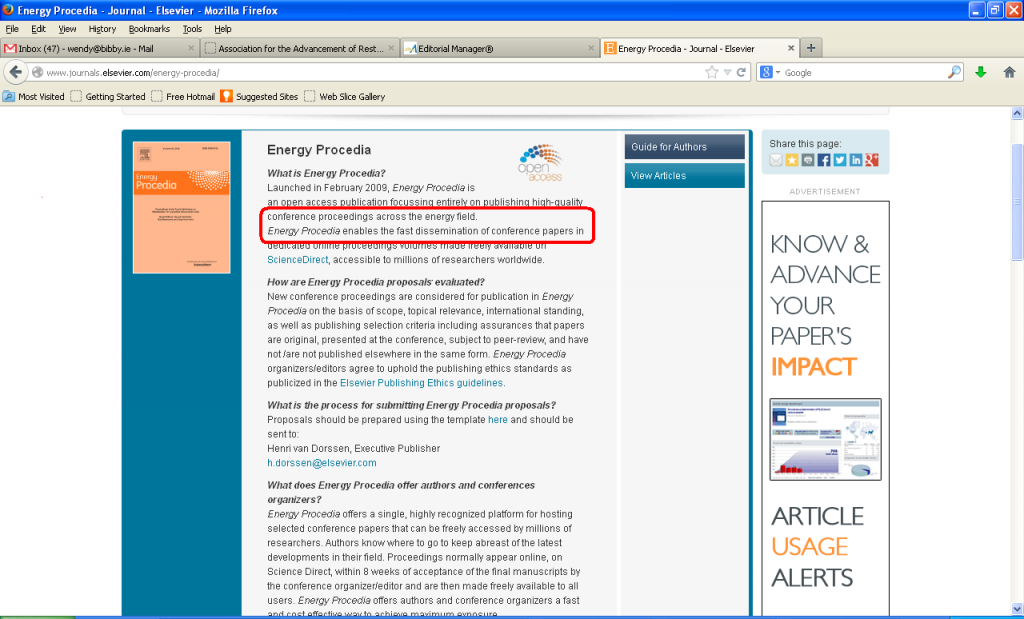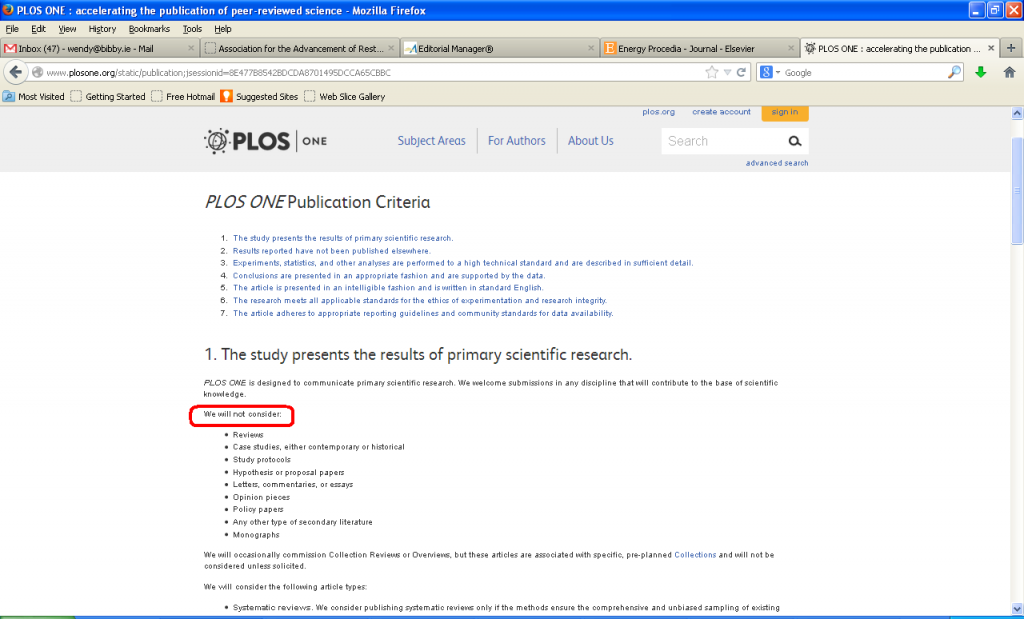You have worked so hard on your research, and then even harder to write your article. You spent a long time selecting the right journal for your article. Finally, you submit your article, and anxiously await the result of the peer review.
So it can be very disappointing if an article is rejected straight away, without even being peer-reviewed. In this article, we will look at some of the reasons for this type of rejection, and how to prevent them.
1. Out of scope
Choose the journal carefully. If the subject matter of the journal does not match the scope of the article, it will be rejected. Check the Aims and Scope carefully before submitting your article. The Aims and Scope can be found on the journal website.
For example, the journal Energy Procedia only publishes papers from conference proceedings.

2.Wrong Article Type
Some journals only publish specific types of article. Here is an example from PLOS ONE of all the article types they will not consider.

3. Technical screening
Prepare your article carefully. If it doesn’t match the journal requirements, it may be sent straight back to you. Many journals perform a technical screening, to assess if the article is ready to send on for review. The screening does not judge the scientific content of the article. When submitting, ask yourself the following questions:
- Are all the required elements present? Check the Guide for Authors or Submission instructions. In addition to your article, you may be asked for a cover letter, a conflict of interest statement, a list of highlights, etc.
- Does the article meet any limits set by the journal? For example, many journals restrict the abstract to 250 words.
- Are there any missing parts to the article? (e.g. Figs. 1–3 are mentioned in the text, but only Figs. 1 and 2 are supplied)
- Is the English at least good enough so that the content of the article can be understood and reviewed?
- Have you avoided plagiarism? Most journals will run a comprehensive check for plagiarism, e.g. using iThenticate.
Article preparation and submission instructions can be long and complicated. Find out if there is a submission checklist on the journal website. This will make it easier to see if you have met the journal requirements.
Reviewers give their time and expertise for free, to further the advancement of science. However, reviewers may complain if they are sent articles to review that are just not ready for publication. Journals will usually return these articles to authors. Read the rejection letter carefully, the journal may invite you to resubmit after fixing these technical problems. If you need assistance, International Science Editing will be more than happy to help.
4. Editor/Editorial Board screening
In many journals, the Editor will evaluate the paper before sending it on for review. The Editor will look at the paper in more detail than a technical screening. Journals often have a limit to the number of articles they can publish, and may receive many more submissions than they could ever hope to publish. For example, the website for the journal Nature states that “All submitted manuscripts are read by the editorial staff. To save time for authors and peer-reviewers, only those papers that seem most likely to meet our editorial criteria are sent for formal review. Those papers judged by the editors to be of insufficient general interest or otherwise inappropriate are rejected promptly without external review.” Nature has space to publish only 8% of articles submitted . Read the rejection letter carefully, it may help you to decide if your article is ready to submit to another journal, or if it needs more revision.
In summary
Rejection before peer review is a regular feature of the publishing process. It does not mean that your article has been treated unfairly, but it does mean that something needs to be changed before it can be published. Select the journal carefully, and prepare your article according to the journal requirements.
For more advice on the publishing process and how to prepare your article for publication, or if you would like individual advice on preparing your article, please contact International Science Editing at admin@internationalscienceediting.com